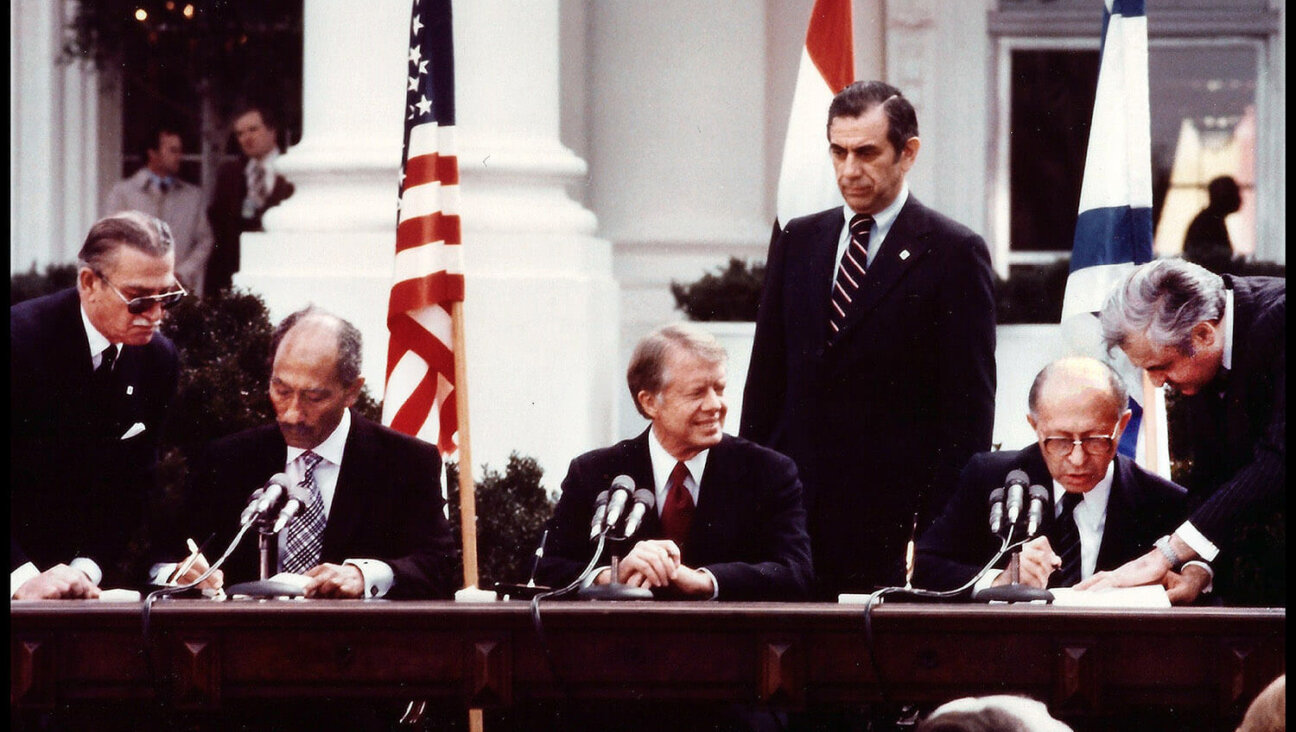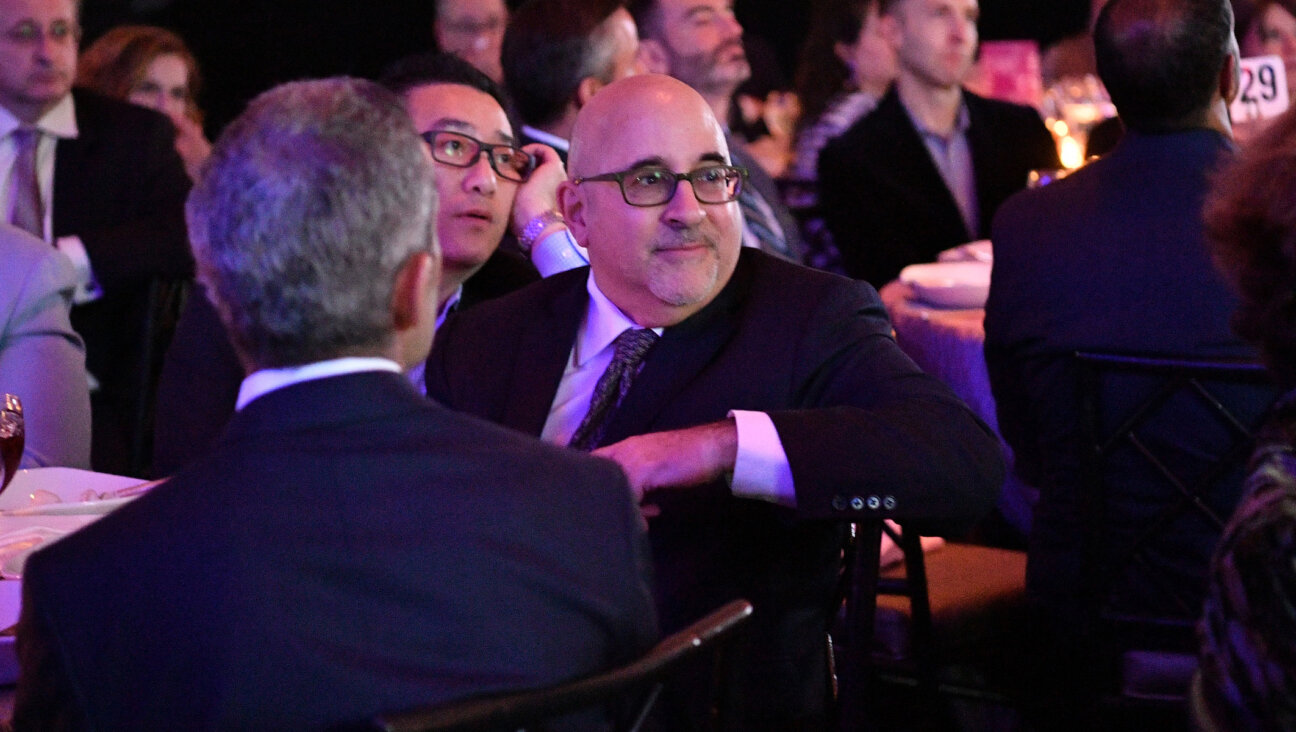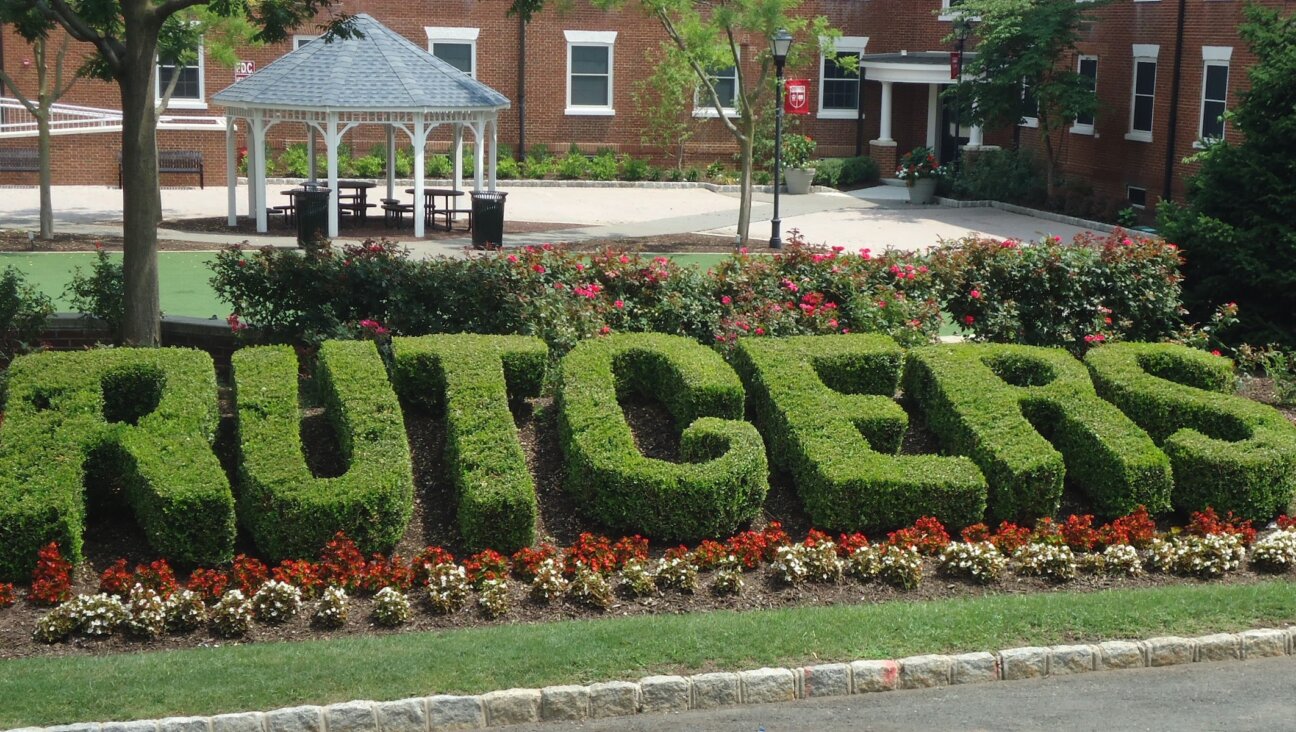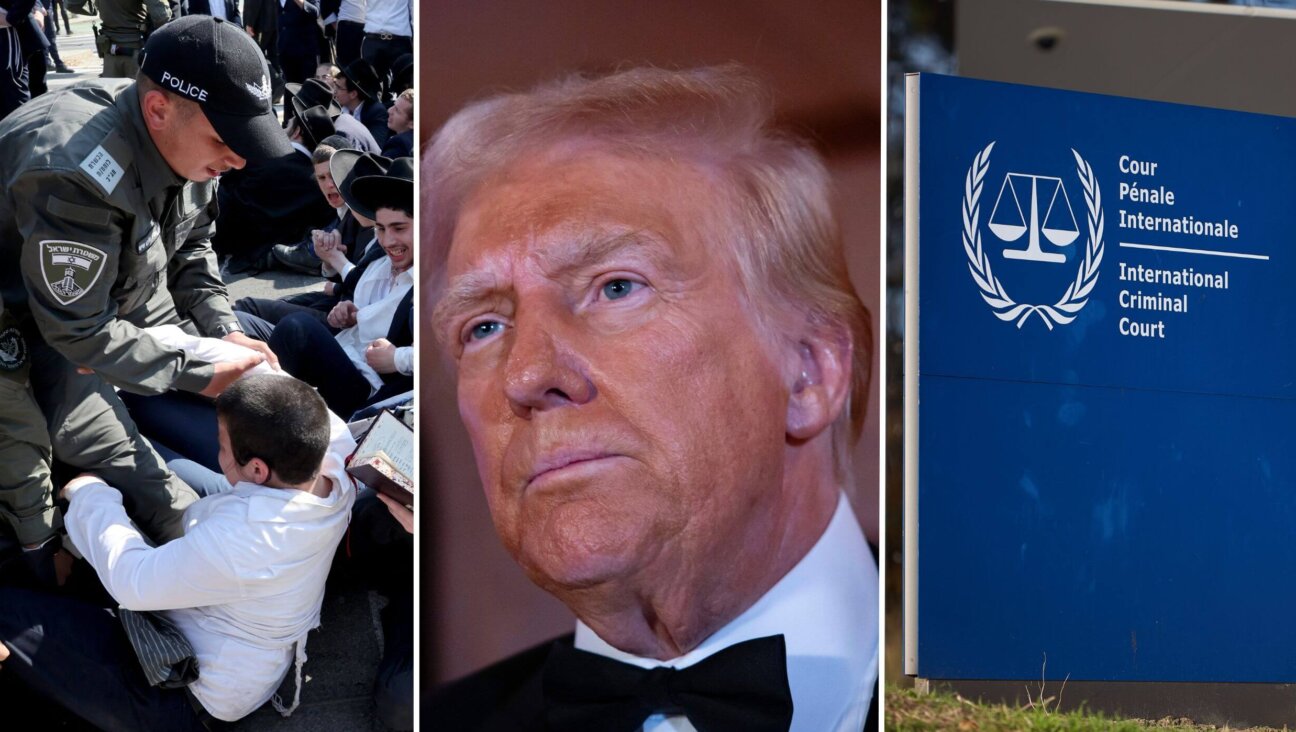Big Brass on Board for Intrepid ‘Salute’
The “winds of war” were on hold aboard the Intrepid Sea-Air-Space Museum for the February 14 Intrepid Museum Foundation’s Salute to Freedom Award dinner honoring Secretary of Defense Donald Rumsfeld. Greetings by the foundation’s chief operating officer, Bill White, got the festive evening under way.
The crowd comprised political and military brass including New York State Comptroller Alan Hevesi, the evening’s master of ceremonies; Norman Podhoretz; Rep. Carolyn Maloney, a New York Democrat; New York City Police Commissioner Raymond Kelly; C.W. “Bill” Young, chairman of the House Appropriations Committee; General John Keane, U.S. Army vice chief of staff; General Michael Hagee, commandant of the U.S. Marine Corps; Admiral E.P. Giambastiani Jr., combatant commander of the U.S. Joint Forces Command, and Air Force General Ralph Eberhart, combatant commander of the North American Aerospace Defense Command and the U.S. Northern Command.
Anthony Fisher, the Intrepid Foundation’s chairman and CEO, paid tribute to the “brave men and women of our armed forces… gathering overseas by the hundreds of thousands.”
Martin Edelman, counsel at Paul, Hastings, Janofsky & Walker, LLP, introduced Intrepid Freedom Award recipient General Tommy Franks, USA combatant commander of the U.S. Central Command, “who will be leading our sons and daughters of America,” calling him a “leader who cares as passionately about his troops as about America… a humorist, a raconteur… who never forgets where he came from.”
Apropos, when I exchanged pleasantries with Franks, someone asked him if he had gone to West Point. Looking down from his stratospheric height, the general smiled, “I began as a private,” then added, “Isn’t this a wonderful country!”
“I just call him ‘boss,’” Franks said as he introduced Rumsfeld. Drawing parallels between himself and the USS Intrepid, Rumsfeld enumerated: “She was commissioned into naval service in the middle of the 20th century, and so was I. She went on to serve the Navy in various capacities for more than three decades, and so have I. She retired from government service in the late 1970s but then was brought back from the scrap yard, and so was I. And there is one more thing we have in common: We are both living proof that a couple of broken-down old Navy vessels can still strive to serve this great country.”
“After our country was attacked at Pearl Harbor, the Intrepid came to her rescue,” Franks continued. “From her deck half a century ago, American sailors watched in horror as, on five separate occasions, suicide bombers crashed their planes into this ship. Each time… heroes sprang into action… risking their lives to pull the wounded from the wreckage. From her deck, on a clear September morning, Americans watched in horror as suicide bombers struck again, this time crashing planes into the World Trade Center. From her deck, you could see the Twin Towers collapse.… Heroes [risked] their lives to pull people from the wreckage…. Just as the Intrepid rose from the devastation of [the] attacks half a century ago, so has our nation risen from the devastation of September 11.”
“After Pearl Harbor,” he said, “our country fought back and defeated those who attacked us. But we also made clear that America was not interested in conquest or colonization…. We helped the Japanese rebuild from the rubble of war and establish the institutions of democracy…. After September 11, we fought back in Afghanistan [and] also made clear that America was not interested in conquest or colonization.”
During an unscripted question-and-answer session, Rumsfeld told the 900-strong assemblage: “The Muslim world needs to take back its religion — it’s been hijacked by a small minority.”
On a different note, he added, “I don’t believe for a second that Harry Truman was following a public opinion poll when he decided to put the Marshall Plan in place. I don’t believe for a second that John F. Kennedy was following a public opinion poll when he said to the world with respect to the Soviet threat that the American people would bear any burden and pay any price to contain that expansionist regime. I don’t believe there was any public opinion poll that told Ronald Reagan he should tell Mr. Gorbachev to ‘tear down that wall.’”
In his closing remarks, Rumsfeld recalled visiting American soldiers at Walter Reed Army Hospital who had been wounded in Afghanistan. “There was one young man who had his left hand blown off…. [His] jaw was wired… his right hand strapped to his right leg for skin grafting. I asked his wife where she was staying. ‘The Fisher House, right here at Walter Reed. It’s $10 a night…. If you ever see Mr. Fisher, please tell him thank-you.’”
The 28 Fisher Houses established near military hospitals were the brainchild of Zachary Fisher (19l0-1999), a son of a Russian immigrant bricklayer who went on to become a construction worker, then a builder, then a philanthropist and super patriot who rescued the USS Intrepid from the scrap heap. Fisher was a supporter of Israel and a contributor to the United Jewish Appeal. When 241 Marines were killed in the 1981 barracks bombing in Beirut, Fisher sent each of the victims’ children — 113 of them — $10,000 for college. Six years later, when a gun-turret explosion killed 47 sailors aboard the battleship Iowa, Fisher sent $25,000 to each family that lost a son or husband in that disaster.
A message from our Publisher & CEO Rachel Fishman Feddersen

I hope you appreciated this article. Before you go, I’d like to ask you to please support the Forward’s award-winning, nonprofit journalism so that we can be prepared for whatever news 2025 brings.
At a time when other newsrooms are closing or cutting back, the Forward has removed its paywall and invested additional resources to report on the ground from Israel and around the U.S. on the impact of the war, rising antisemitism and polarized discourse.
Readers like you make it all possible. Support our work by becoming a Forward Member and connect with our journalism and your community.
— Rachel Fishman Feddersen, Publisher and CEO























